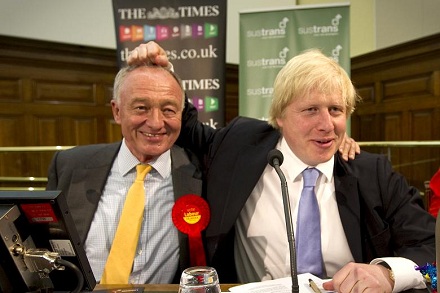French presidential finalists — incumbent Nicolas Sarkozy and Parti socialiste candidate François Hollande — faced off Wednesday night in what commentators are calling the most animated debate in the history of French presidential debates.![]()
In short, Sarkozy jumped into the arena as attack dog on any number of issues — defending his record on the economy in France and in the eurozone, and going on the offensive on any number of cultural issues, such as immigration. Hollande, in turn, gave as good as he took from Sarkozy, showing that he could rebut the president’s jabs persuasively, forcefully and calmly.
For me, the debate is crystallized by a snarky exchange over Dominique Strauss-Kahn, the former IMF managing director and Party socialiste heavyweight who, until he was charged with raping a housekeeper in New York last year, was the favorite to win the Socialist nomination and the French presidency:
“I won’t accept lessons from a political party that was enthusiastically uniting behind Dominique Strauss-Kahn,”Sarkozy said in a hard-fought debate four days before France’s election.
“I was sure you were going to bring that up,” Hollande retorted. “You put him at the head of the IMF.”
In any event, the result is a presidential race with a dynamic fairly unchanged from the pre-debate dynamic, with Hollande leading by anywhere from six to nine points in advance of Sunday’s second-round vote. If anything, Hollande gained a little ground — by pushing back at Sarkozy, he showed he is not quite the squish everyone assumes him to be.
Ultimately, I can’t help thinking that the debate is a metaphor for the second round so far: a lot of motion, but not a lot of movement. Continue reading Hollande and Sarkozy move beyond debate: motion without movement

